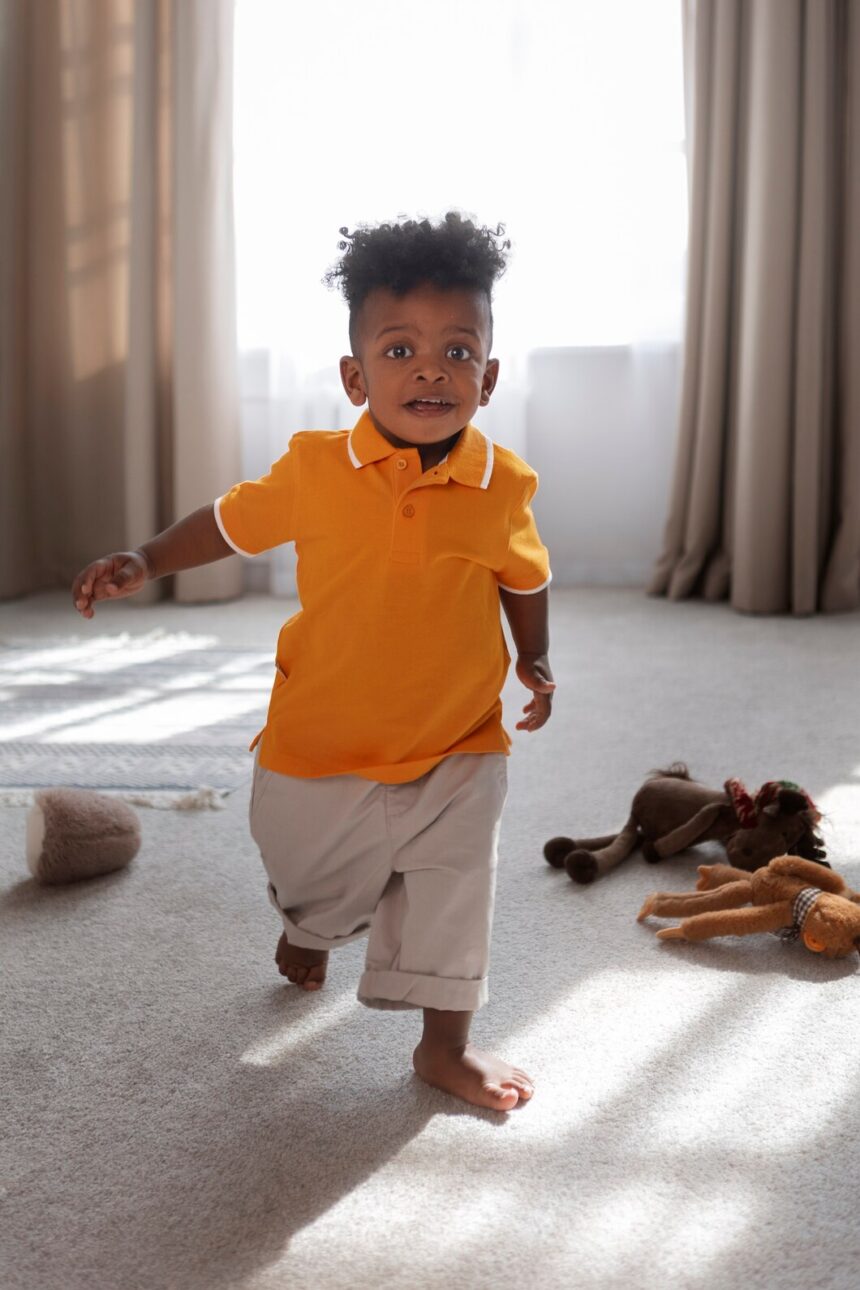At 17 months old, your baby is rapidly approaching toddlerhood, marked by a blend of growing independence and developing skills. Here’s a look at some typical milestones for a baby at this age:
1. Motor Skills:
- Walking and Running: Many 17-month-olds have mastered walking and may begin to run or walk with more confidence. They might start to climb stairs with assistance and navigate uneven surfaces.
- Fine Motor Skills: Your baby is improving their ability to grasp and manipulate objects. They may be able to use a spoon or fork with increasing skill and are often fascinated by simple puzzles or stacking toys.
2. Language Development:
- Vocabulary Growth: At this stage, toddlers often have a vocabulary of 5-10 words, though this can vary widely. They may say simple words like “mama,” “dada,” or names of familiar objects and people.
- Understanding: They start to understand simple instructions and can follow basic commands such as “come here” or “give me the ball.”
3. Cognitive Skills:
- Exploration: Curiosity is a driving force, leading them to explore their environment with heightened interest. They may start to understand cause and effect, like pressing buttons on toys to make them light up or make noise.
- Problem-Solving: Simple problem-solving skills begin to emerge, such as figuring out how to fit shapes into a shape sorter or how to reach a toy that’s out of reach.
4. Social and Emotional Development:
- Attachment: Your baby is likely forming stronger attachments to familiar people and may show preference for certain caregivers or comfort objects.
- Social Interaction: They may begin to show interest in other children, even if their interactions are mostly parallel play. They might also express a wider range of emotions, from joy to frustration.
5. Self-Care Skills:
- Feeding: As fine motor skills improve, your toddler may begin to show more interest in self-feeding and drinking from a cup with less spilling.
- Toilet Training: While not typically expected to be potty trained by 17 months, they may start showing signs of readiness for potty training, like staying dry for longer periods or showing interest in the toilet.
Each child develops at their own pace, so these milestones can vary. Regular check-ins with your pediatrician can help ensure that your child’s development is on track and provide guidance if there are any concerns.










